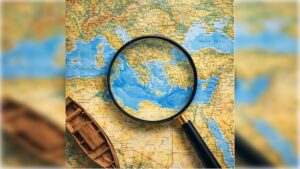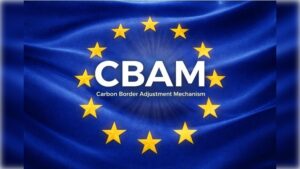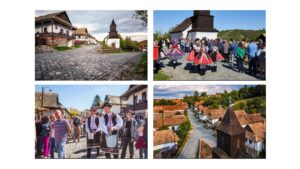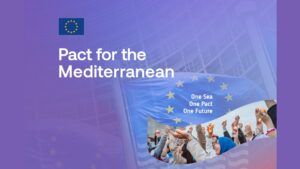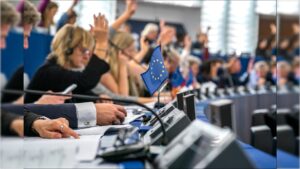English translation: Viktória Lilla Pató and Laura Schmidt
The international conference on the legacy of an “even closer Union” was attended with great interest by key European politicians such as former Slovak and Finnish Prime Ministers Mikulás Dzurinda and Jyrki Katainen, Dubravka Suica, Vice-President of the European Commission and former Hungarian EU Commissioner Tibor Navracsics.
The event was co-organized on the 28th of May by the Wilfried Martens Center for European Studies, the University of Public Service of Hungary and the Eötvös József Research Center.
The event titled “The Legacy of an Ever Closer Union in 2021 – Perspectives for Democracy and Integration” was opened by Mikulás Dzurinda, President of the Wilfried Martens Center, former Prime Minister of Slovakia, who, in addition to recalling the economic, migration, natural and epidemiological challenges of the last 15 years, in the European Union and the loss of the United Kingdom, highlighted the so-called White Paper, including the concept of a conference on the Future of Europe. As he said, the soon-to-be-launched initiative will be a great opportunity for EU citizens to redefine what the EU means to them.
In his welcoming remarks, Tibor Navracsics, former Minister of Foreign Affairs and former EU Commissioner, Director of the Europe Strategy Research Institute at University of Public Service, emphasized the key role of Wilfried Martens Institute in communicating right-wing conservative values in cooperation with the European People’s Party. He added:
“The legacy of the European integration is a defining theme today, as the ‘European project ’has come to a sort of branching out. We have to face both external and internal challenges, but what sets the European Union apart from other international organizations is that it is a ‘community of communities’ in which Hungary plays an important role, being in the heart of Europe.”
Dubravka Suica, Vice-President of the European Commission, the Croatian EU Commissioner for “Democracy and Demography” and the head of the “Conference on the Future of Europe” initiative, said: Creating a legacy of an ‘ever closer Union’ requires everyone’s consent. In her speech, she pointed out that politics in the European Union has changed today, the future is now shaped not only by politicians, but also by citizens, which is a key element to preserve our democracy. She underlined that democracy, the rule of law and fundamental human rights are the values,on which the EU is built, but they must not be taken for granted, they should be nurtured and protected. In order to preserve these foundations, one of the Commission’s actions, the Conference on the Future of Europe serves this purpose as well, she explained.
Antonio López-Istruiz-White, representing the European People’s Party, took the floor as the first participant in the roundtable discussion, voicing his conviction that there was plenty of negative criticism of the European Union during the pandemic. Member States have been unable to act in unison in the current crisis, which is partly due to the fact that health is not an EU competence but a Member State competence, the MEP said. He expressed the hope that one day, when defining our identity, we would first say that we are Europeans, rather than thinking of our own nationality, but that this was likely to happen only in the lives of our children – his way of pointing out that he does not see the EU as an integrated entity.
Jyrki Katainen, a Finnish politician and former prime minister of his country, focused mainly on the financial aspects of the EU, emphasizing that the market economy on which the EU is based has no value at all, only EU politicians added value later, but environmental and ecological values are still lacking. In his view, there is also financial solidarity in the European Union, but it is the duty of each Member State to take responsibility for any financial wrongdoings.
The roundtable discussion was closed by Jean-Philippe Gammel, a former member of the Navracsics cabinet and a staff member of the European Commission, who highlighted the impact of the EU on identity and freedom. The panelist with a French-German dual identity illustrated, through his own example, how the Union was able to become, through the Maastricht and Schengen acquis, the exceptional institution as we now know it today. In his speech, he drew attention to the lessons learned from the coronavirus epidemic and emphasized the importance of international cooperation between scientists on information sharing, more effective forecasting, vaccine research and solidarity between Member States.
The recording of the event can be accessed here.
The speech of Dubravka Suica can be watched here.
